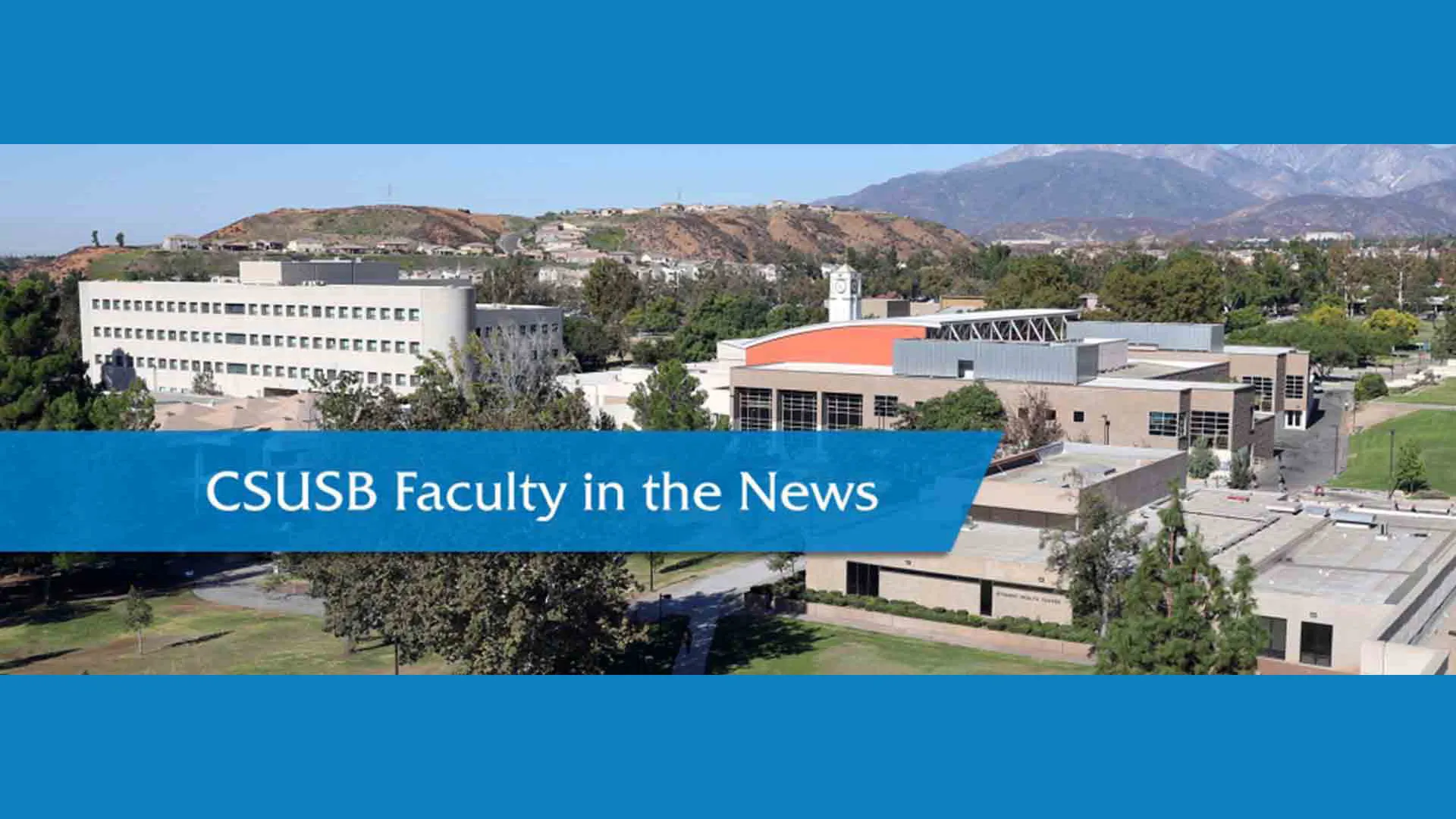NOTE: Faculty, if you are interviewed and quoted by news media, or if your work has been cited, and you have an online link to the article or video, please let us know. Contact us at news@csusb.edu.
CSUSB professor comments on study on how rattlesnakes communicate threats
National Geographic via MSN
Aug. 19, 2021
Bree Putman, a herpetologist at California State University, San Bernardino, was interviewed for an article about a new study in the journal Current Biology on how rattlesnakes use their rattles according to how close predators are.
“Maybe that’s another function of the rattling, is to kind of confuse predators,” said Putman, who was not involved in the study. While it wasn’t surprising to Putman that the snakes would encode distance-related information in their tail-shakes, she found the fact that humans frequently misjudged the serpent’s distance intriguing.
Read the complete article at “Rattlesnakes trick humans into thinking they’re closer than they are.”
CSUSB professor discusses the threat of domestic terrorism after man threatens to blow up Capitol Hill
BNC via Facebook
Aug. 19, 2021
Brian Levin, director of Cal State San Bernardino’s Center for the Study of Hate and Extremism, was interviewed for a segment about a bomb threat, and the suspect involved, on Capitol Hill on Aug. 19. The suspect livestreamed himself in his truck, describing himself as a “patriot” and airing grievances he had with Democrats. The man was later arrested without incident, and police said they found possible bomb-making material, but no bomb, in his truck.
The segment focused on white domestic extremists, which, based on the center’s research, Levin has frequently pointed to as a greater threat to the U.S. than foreign terrorist. White supremacists, since 2018, have been “the number one perpetrators with respect to fatalities in American extremist homicides. And our data is consistent with that found in other places like advocacy groups and even other universities.”
He also discussed how hate and violence is making its way into politics. “We’re seeing the same kind of invective used,” Levin said. “We’re seeing increases on the internet of this invective tied to hate crime numbers on the street and even extremist plots.”
Watch the segment, posted on BNC’s Facebook page, at “White domestic terrorists are America’s greatest threat.”
The CSUSB Center for the Study of Hate and Extremism’slatest research on hate crimes against Asian Americans was cited in the following:
Opinion: 'We're all human beings': Rise of Asian hate against Ohtani and in all sports shouldn't be tolerated
USA Today via Yahoo!
Aug. 19, 2021
Research by CSUSB’s Center for the Study of Hate and Extremism that tracked the increase in hate crimes against Asian Americans was mentioned in a column about a series of anti-Asian incidents in sports.
“A disgusting remark from a broadcaster. A racist gesture from a Green Bay Packers player. These incidents follow others like what happened with an ESPN broadcaster and then what occurred with (former NFL player Eugene) Chung. …
“The Center for the Study of Hate and Extremism at Cal State San Bernardino says hate crimes against Asians increased by 150 percent in America's 16 largest cities in 2020. There was a mass shooting at Atlanta area spas in which eight people, six of them Asian women, were shot dead.”
‘It’s not a film about a virus’: A shocking documentary on COVID mishandling
The Guardian
Aug. 19, 2021
An article on a new documentary film, “In the Same Breath,” on the COVID-19 pandemic in China and the United States, cited research on anti-Asian hate crimes by CSUSB’s Center for the Study of Hate and Extremism.
“Attacks on Asian Americans in 16 of the US’s biggest cities leaped by an unprecedented 164% during the first quarter of this year, according to police data compiled by the Center for the Study of Hate and Extremism at California State University, San Bernardino,” the article stated.
These news clips and others may be viewed at “In the Headlines.”
